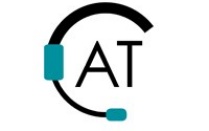Electronics simulation software
Competency Group: Electrical Engineering
Type: Software Simulation Tool
Description: Electronics simulation software utilizes mathematical models to replicate the behavior of an actual electronic device or circuit. Essentially, it is a software program that converts your computer into a fully functioning electronics laboratory. As an example, CircuitLogix software supports analogue, digital, and mixed-signal circuits, and its SPICE simulation (see tool entry for SPICE) gives accurate real-world results. The graphic user interface allows people to quickly and easily draw, modify and combine analogue and digital circuit diagrams. E.g. Will draw out circuits and simulate what happens when the circuits are powered up.
Citation for Description: Simulation software. (2012). Retrieved from Wikipedia, http://en.wikipedia.org/w/index.php?title=Simulation_software&oldid=471220241
Units: Generally Voltage and current waveforms
Advantages: Can prove a circuit design is going to work before building and testing it.
Limitations: Requires a computer to operate it, and can be time consuming.
Regulations: IEEE Standards Association. (2012). 1516-2010 — IEEE Standard for Modeling and Simulation (M&S) High Level Architecture (HLA) — Framework and Rules. Retrieved from http://standards.ieee.org/findstds/standard/1516-2010.html
Target Audience: Engineering
Relevant to Universal Design: No
Stages and Steps: 3.5, 5, 6
Free Resource: CircuitLogix. (2011). Retrieved from http://www.circuitlogix.com/
Free Resource: Logic Design Inc. (2006). Basic Tutorial of CircuitLogix. Retrieved from http://www.circuitlogix.com/docs/CircuitLogixTutorial.pdf
